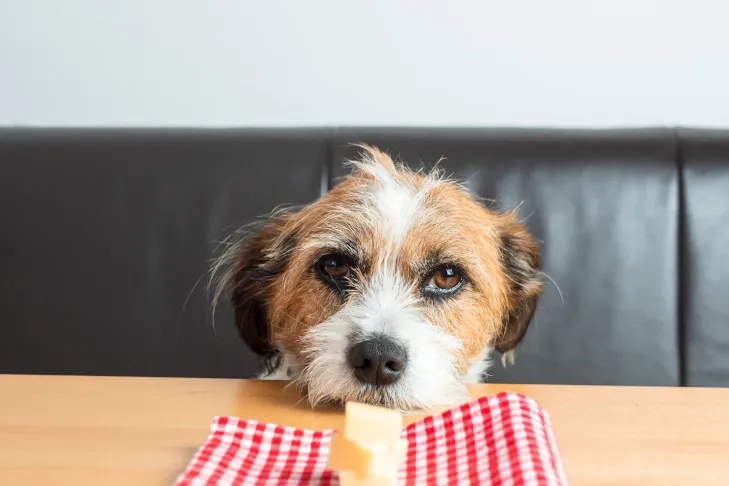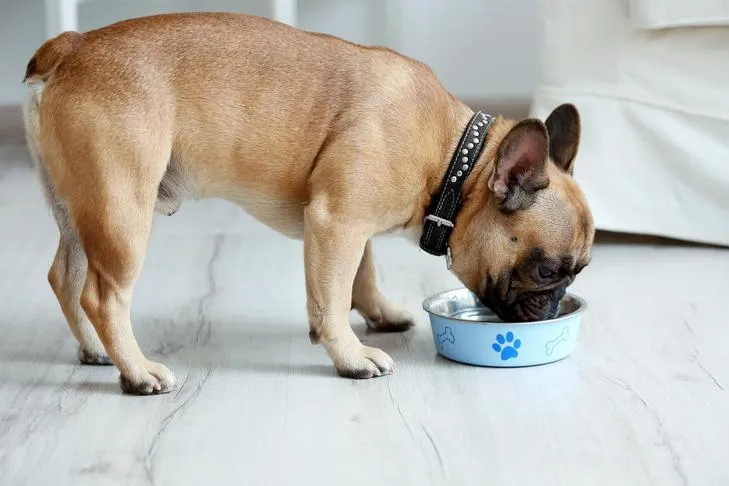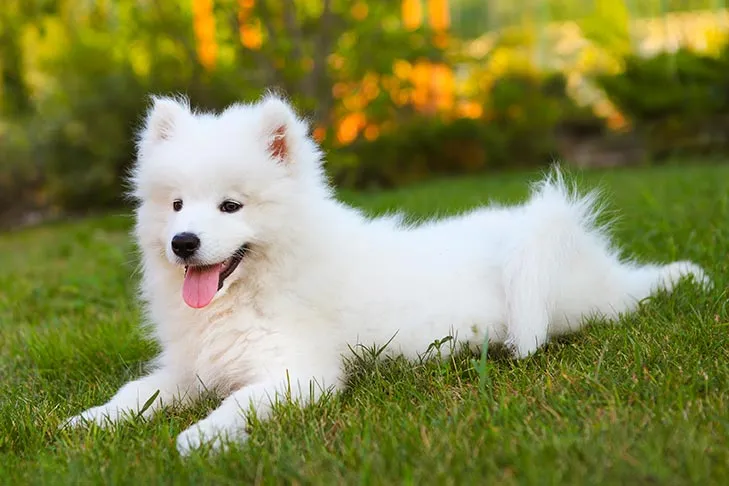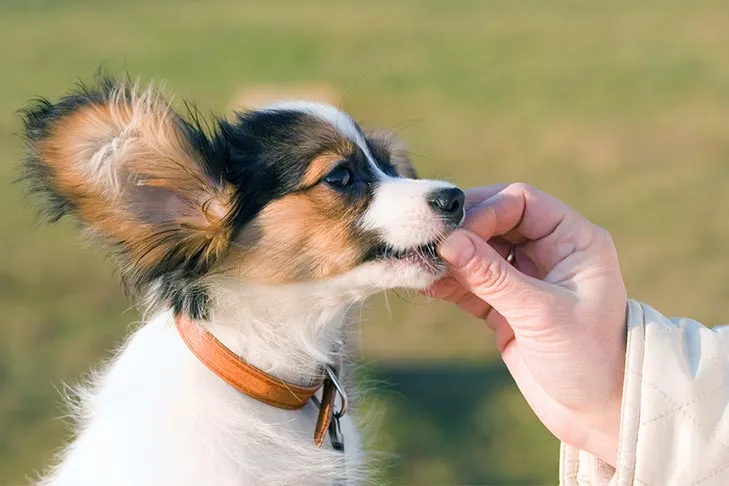Wondering which human foods dogs can eat safely? As a dog owner, it’s tempting to share table scraps with your furry friend, but not all kitchen staples are pup-friendly. According to the American Kennel Club (AKC) and veterinary experts, certain human foods offer nutritional benefits like protein, healthy fats, and vitamins when given in moderation. This guide covers over 20 safe options, backed by reliable sources, to help you treat your dog without risking their health. Always prioritize a balanced dog food diet and consult your vet, especially for puppies, seniors, or dogs with conditions like obesity or allergies.
Bread
Plain bread is one of the human foods dogs can eat in small amounts, provided it has no toxic additives like raisins, garlic, or spices. While it offers little nutritional value—mostly empty carbs and calories—it’s not harmful occasionally. Opt for homemade versions without preservatives over store-bought loaves, which may contain unnecessary additives. However, bread shouldn’t replace nutrient-rich treats; excessive intake can lead to weight gain, just like in humans.
Cashews
Unsalted cashews rank among safe human foods dogs can eat, delivering calcium, magnesium, antioxidants, and protein. Feed only a few at a time to avoid fat overload, which contributes to obesity. Veterinary nutritionists note cashews have less fat than many nuts, making them a occasional treat. Always check labels for salt or seasonings, and monitor your dog’s weight closely.
Cheese
Cheese is a popular treat among human foods dogs can eat, suitable in small to moderate quantities for most dogs. Low-lactose varieties like cottage cheese or mozzarella are ideal, especially if your pup tolerates dairy well—lactose intolerance is uncommon but possible. High-fat cheeses should be limited to prevent pancreatitis. Many dogs love cheese-based chews, mimicking this snack safely.
 All American Dog resting its head on the kitchen table looking at cheese.
All American Dog resting its head on the kitchen table looking at cheese.
Coconut
Coconut stands out among human foods dogs can eat due to lauric acid, which fights bacteria and viruses. It aids bad breath, skin issues like hot spots, flea allergies, and itchiness. Coconut oil and milk are also safe; apply oil topically or mix sparingly into food. Remove the hard shell to prevent choking hazards—vets recommend starting with tiny amounts to test tolerance.
Corn
Corn is a staple in many commercial dog foods and safe as one of the human foods dogs can eat—off the cob only. The kernels provide fiber and antioxidants, but cobs pose digestion risks like blockages. Skip buttered or salted versions; plain corn kernels make a low-calorie crunch. For fun without calories, consider corn-shaped toys.
Eggs
Fully cooked eggs are excellent human foods dogs can eat, packed with protein to soothe upset stomachs. They supply essential amino acids without biotin deficiency risks from raw whites. Scramble or boil plainly—no oils or seasonings. Vets often suggest eggs for underweight dogs or those recovering from illness, limiting to a few per week.
Fish
Fish like salmon and sardines are top human foods dogs can eat, rich in omega-3s, good fats, and amino acids for skin, coat, and joint health. Sardines offer digestible calcium from soft bones; remove bones from others. Feed fully cooked, no more than twice weekly to avoid mercury buildup. This boosts immunity, per AKC guidelines.
Ham
Ham is okay sparingly among human foods dogs can eat, but its high sodium and fat content make it less ideal. A tiny trimmed piece won’t harm, but avoid as a habit to prevent salt toxicity or pancreatitis. Choose lean, unprocessed cuts without glazes—better options abound for protein treats.
 French Bulldog eating from a bowl at home.
French Bulldog eating from a bowl at home.
Honey
Raw honey brims with vitamins (A, potassium), minerals, and antioxidants, qualifying as a safe human food dogs can eat in tiny doses. It builds allergy resistance via local pollen and heals minor burns topically. Use sparingly to avoid sugar spikes; manuka honey adds antibacterial perks for digestive aid.
Milk
Milk is among human foods dogs can eat cautiously—many handle small amounts fine, but lactose intolerance causes diarrhea. Puppy milk replacers are safer alternatives. Stick to low-lactose options or skip if symptoms appear; hydration via water remains key.
Peanut Butter
Xylitol-free, unsalted peanut butter excels as a human food dogs can eat, offering protein, heart-healthy fats, vitamins B, E, and niacin. Smear sparingly on toys for mental stimulation. Always read labels—xylitol toxicity is fatal. Vets endorse it for training rewards.
Peanuts
Plain peanuts join safe human foods dogs can eat, providing fats and proteins without almond risks. Moderation prevents pancreatitis from excess fat; unsalted only, as salt strains kidneys. Shelled peanuts reduce choking.
Popcorn
Air-popped, unsalted, unbuttered popcorn is a low-cal human food dogs can eat, with riboflavin, thiamine, iron, and protein for eye and digestive health. Ensure all kernels pop fully to avoid dental cracks or choking. A handful makes a fun, fibrous treat.
Pork
Fully cooked pork delivers digestible protein and amino acids as a human food dogs can eat—often allergy-friendlier than beef or chicken. Trim fat to cut calories; avoid raw pork due to parasites like trichinella.
Quinoa
Quinoa appears in premium dog foods and is safe among human foods dogs can eat, surpassing corn or wheat nutritionally with complete proteins and fiber. Cook plainly; it’s gluten-free for sensitive pups.
 Samoyed puppy laying in the grass outdoors.
Samoyed puppy laying in the grass outdoors.
Salmon
Cooked salmon shines as a human food dogs can eat, fueling joints, brain, and immunity with omega-3s. Raw salmon risks deadly parasites—always cook thoroughly. Limit to avoid overfishing concerns or allergies.
Shrimp
Peeled, cooked shrimp are low-fat human foods dogs can eat occasionally, loaded with antioxidants, B12, and phosphorus. Devein and remove shells/tails to prevent blockages; a few boost nutrition without calories.
Tuna
Water-packed, plain tuna is a modest human food dogs can eat for omega-3s supporting heart and eyes. Limit canned due to mercury/sodium; fresh cooked is premium. Skip oil or spiced varieties.
Turkey
Skinless, boneless turkey is safe as a human food dogs can eat—lean protein post-holidays. Remove fat, salt, onions, or garlic; cooked poultry bones splinter dangerously.
Wheat or Grains
Grains like wheat provide fiber, fatty acids, and protein in human foods dogs can eat—grain-free isn’t always necessary. Tailor to allergies via vet tests; they’re digestible staples.
Yogurt
Plain, low-sugar yogurt is probiotic-rich human food dogs can eat, aiding digestion if dairy-tolerant. Skip artificial sweeteners; Greek varieties offer extra protein.
 Papillon puppy gently taking a treat from a hand.
Papillon puppy gently taking a treat from a hand.
In summary, these human foods dogs can eat enhance your pet’s diet safely in moderation, promoting health without replacing quality kibble. Portion control, cooking methods, and individual tolerances matter—watch for allergies or digestive upset. Steer clear of toxic foods like chocolate, grapes, onions, and xylitol. For personalized advice, consult a veterinarian. Explore more dog nutrition tips on our site and share your experiences below!
References
- American Kennel Club (AKC): Can Dogs Eat Bread?, Can Dogs Eat Cheese?, and similar articles linked throughout.
- Veterinary guidelines from ASPCA and PetMD on safe treats and portion sizes.
